Everyone can be toxic and evil at times. We all have the choice and the potential to harm or help others. But as there are so many misconceptions about introverts, it can be hard to fully understand them.
Introverts are malicious!
Even the strongest are afraid of the silent introvert. They are wicked and violent people who don’t care about relationships. As they stay alone all the time, they can’t relate with others. They keep their thoughts and emotions to themselves, bottling up their feelings, which make them feel overwhelmed. This leads to years of resentment and bitterness. They are rarely expressive, extremely sensitive, always thinking and can hold grudges for years.
They sit quietly in the corner all by themselves, plotting and scheming. They may appear shy and innocent, but behind that deceiving façade, lies true evil. They can’t take jokes and take everything personally. You will never know when you have hurt them or if they are angry at you. Unless they tell you, which they won’t. They hide malice inside their hearts and spill it out like slow poison. They hide their evil intentions well and will strike you when you least expect it.
Well, I’m an introvert and I’m not evil.
Of course, I do get angry and react negatively at times, depending on the situation, like any normal person would. But I don’t spend my day plotting about how to hurt people. There’s a little bit of evil in everyone regardless of how “good” they may be. That’s what the whole concept of yin and yang is all about.
Unfortunately, introverts are considered as neurotic, anti-social outcasts and even psychopaths. In fact, it is even wrongfully believed that many mass shooters belong to this personality type. Research shows that both introversion and extraversion are related to borderline personality disorder (BPD) and antisocial personality disorder (APD). Another study shows that introversion and extraversion is equally related to neurosis and psychopathy.
Related: 10 Popular Myths About Introverts That Are Far From Truth
Yes, the introvert is reclusive, quiet and a deep thinker. But we are more concerned with ideas, inventions, and our inner selves than about hurting you. “Introverts (the other polar end of extroverts) find less reward around others, have higher levels of social anxiety, and are more inward thinking,” explains a 2014 study. Our preference for solitude may be mistaken for antisocial behavior making us seem like outcasts, but introverts recharge themselves by spending some alone time, not by socializing. There are different types of introverts, just like there are different types of people. And generalizing or stereotyping a personality type based on the behavior of a few individuals, is nothing but a biased mindset.
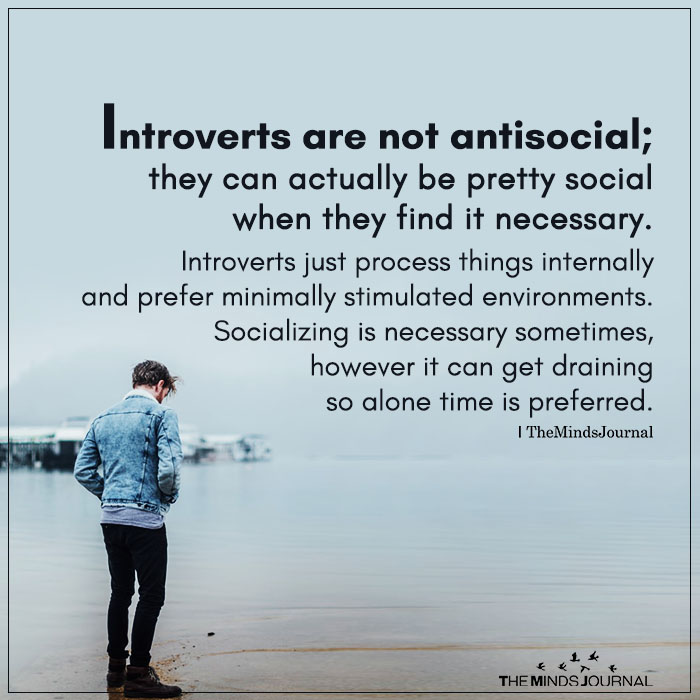
Are introverts misunderstood?
Being an introvert myself, I would say YES! Introverts comprise around 25 to 40 percent of the global population yet there are several myths and misconceptions surrounding them. Many people, especially the older generation, tend to believe that introverts are evil. Why? Because introverted people are quiet, don’t express themselves openly and hence, extroverts don’t know what an introvert is thinking. Instinctively, we, as human beings, are afraid of anything we don’t clearly understand. As a result, the secretive and mysterious nature of introverts gives rise to several scary myths that depict them as mass shooters, psychopaths and serial killers. The truth is, we DON’T want to kill you. We just want to GO HOME.
Related: 9 Things Introverts Want You To Know
It’s mind boggling how people can be scared of someone who doesn’t speak. Instead of trying to understand, people just want to eliminate what they don’t understand. And if they can’t remove it, they will judge it harshly, spread nasty rumors about it and be deathly afraid of it. Who do you think is more dangerous here? The silent introvert or the judgmental a-hole? Demonizing the introvert cannot heal your ignorance. It just shows your limited capacity to be empathetic and compassionate towards others. Introverts are not the spawn of the devil. They just enjoy doing solitary activities more than socializing.
Sadly, the media also plays an important role in this by showing killers and shooters as depressed and shy loners. But a loner is not necessarily an introvert. In fact, research shows that “Extroverts are most likely and Introverts are least likely to commit crimes in adult life.” Introversion is not the problem here. The real problem is judging and labeling individuals as weird and wicked based on their personality and preferences.
But introverts are no saints either
No one is ever truly innocent. It’s true that introverts suppress their emotions and hold on to grudges for years. They are rarely expressive and highly sensitive which makes them get hurt easily. They can be dangerous and evil if and when they want and need to be. If you mess with an introvert for a long time and push them up against the wall, they will never forgive you. But that can be somewhat normal for most people and doesn’t necessarily depend on one’s personality. Having said that, there is a type of unhealthy introvert who can have some toxic habits that can be detrimental to themselves more than others.
Related: Who Is A Ninja Narcissist: 7 Ninja Traits Of A Covert Introvert Narcissist
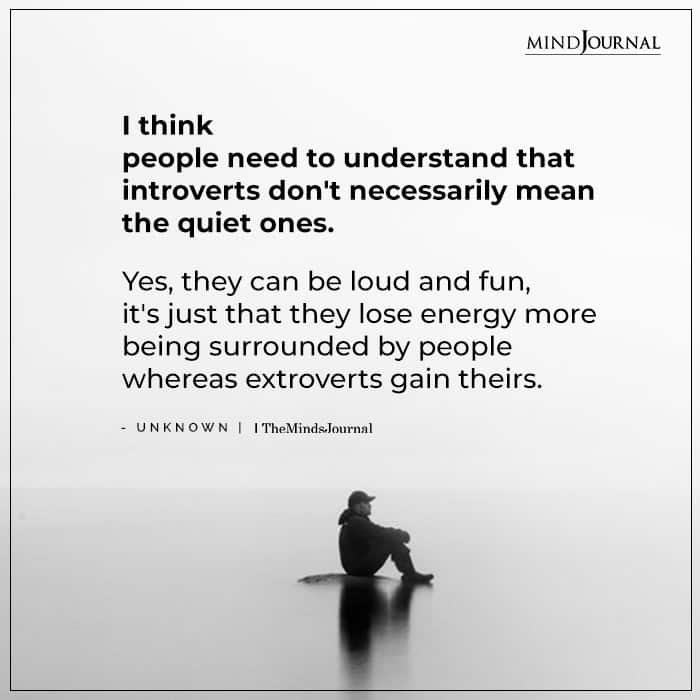
Signs of “Bad” Introverts
If you are wondering how one can identify these toxic, unhealthy and “bad” introverts, here are a few signs you need to watch out for –
1. They have a negative attitude towards groups or teams
There is no doubt that most introverted people love working in solitude and can actually perform better when working alone. A 2011 study states that “introverts prefer to avoid social situations and tend to be reserved, withdrawn, or shy in social settings.” Research also shows that introversion is associated less with socially outgoing activities and more with pursuits that can be accomplished in solitude.
We tend to be more accurate, effective and productive in solitude as we are able to think freely without being distracted by others. However, we can also be excellent team players and leaders as well. But a “bad” introvert detests working in teams. They hate coping with the differing ideas of other team members, personality conflicts, communication challenges and red tape. Although their preference for working alone may be justified, their negative attitude can be detrimental for the team and the collective objective. The fact is even with conflicts and challenges, a team will accomplish more than even the most talented introvert.
2. They suppress their emotions
Being an introvert, it is often difficult for me to fully express myself. I find it difficult to put my complex thoughts and feelings into words to make someone understand what I am going through. However, like most introverted people I do open up to my loved ones as talking about your feelings is a healthy way to cope with stress. Unfortunately, there are some introverts who suppress their natural instincts, preferences, emotions, thoughts and needs excessively, whether consciously or unconsciously.
This makes them feel overwhelmed and over time it turns into hatred and bitterness towards self and others. Studies reveal that hiding emotions can lead to significantly less perceived satisfaction with intimate relationships and life in both introverted and extroverted people. Moreover, it can also negatively affect their physical health.
Related: Introverts More Likely To Suffer From Depression: 6 Tips To Bolster Inner Peace
3. They don’t communicate openly
Introverts can be great speakers due to their natural ability to think deeply & analytically, conduct research and prepare before presentations.They are also masters at communicating using non-verbal tools like emails and texts. However, a toxic introvert may keep a lot of things to themselves and “under-communicate” with others, whether with their coworkers, romantic partners or family members. This can understandably be a problem as no one can read your mind. Moreover, such gaps in communications give rise to misunderstandings and leads to unrealistic expectations for the introvert.
4. They are afraid of conflict
Most introverted people prefer calm and less stimulating environments and hence, we avoid people who are loud or aggressive. But that doesn’t mean we don’t know how to stand up for ourselves or our loved ones. But certain types of introverted individuals are terrified of arguments or confrontations as they are afraid that their flaws and insecurities will get exposed. It is their fear and shame of their weaknesses that keeps them from expressing their anger in a healthy way leading to further stress, anxiety, bitterness and resentment.
Related: 4 Types Of Introverts According To Jungian Psychology
5. They are passive-aggressive
Being afraid of confrontations can often result in passive-aggressive behavior in a “bad” introvert. Studies show that these people view others as interfering & demanding and consider themselves vulnerable to control. As they avoid facing conflicts directly, they show their frustration and anger in indirect ways. According to research, passive-aggressive people tend to be stubborn, pouty, irritable, inefficient, resentful, destructive, antisocial and prone to procrastination. Simply because you prefer peace over conflict does not make your passive-aggressive behavior right. This can be even more destructive than directly expressing your aggression.
6. They are stubborn
Yes, introverts do tend to be inflexible and are set in their own ways. But “bad” introverts can be excessively stubborn and controlling. They become easily disappointed when things don’t go their way. They are also overly attached to their own patterns and routines and refuse to accept change easily. They also refuse to accommodate others’ ideas or energy. This can be a serious problem in relationships. Studies have found that this type of introverted individuals tend to be pessimists, have low self-esteem, feel guilty and depressed, hate themselves, are codependent in relationships and are passive in social situations.
Related: 8 Ways Introverts Interact Differently With The World
7. They are bad at relationships
In general, an introvert can be a great romantic partner as they are excellent listeners, authentic, happy with themselves and focus on building lasting and meaningful relationships. But certain types of introverts can be toxic partners in romantic relationships. They can be highly unsocial, rigid, cancel pre-scheduled plans at the last minute, be self-obsessed, spend too much time by themselves and be generally neglectful towards their partners. Moreover, as they are passive-aggressive, they can be highly toxic during conflicts and give their partners the silent treatment without giving any clear explanations.
8. They vilify extroverts
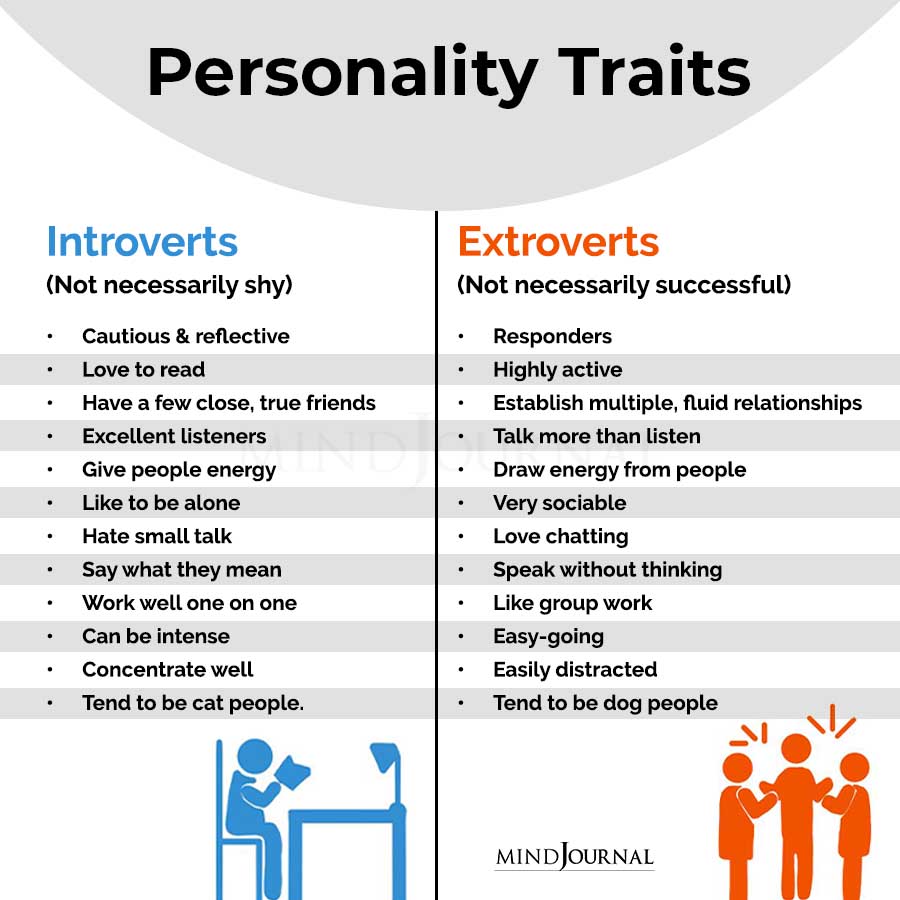
Introversion and extraversion lie on two extreme ends of a spectrum and most people lie somewhere in between with traits of both in varying degrees. Neither personality dimension is good or bad. However, toxic introverts tend to hate and criticize extroverts excessively. They consider extroverts as idiots who just love to talk and party. Granted introverted people are creative and love gaining knowledge, but that doesn’t necessarily mean that extroverts are averse to gaining knowledge. We all have our strength and weaknesses which define us as who we are.
Related: 3 Unexplored Differences Between Introverts and Extroverts
Here are some other signs of a bad introvert that you need to know about –
- They say “yes” even when they want to say “no”
- They isolate themselves
- They pretend to like solitude even when they feel lonely
- They withhold information and refuse to help others with solutions
- They have unrealistic expectations from others
- They can act in a lazy or rude manner in social settings
- They believe they are misunderstood
- They avoid people they know when seeing them in public
- They don’t feel responsible for their own social life
- They believe they are special and the best
- They use their introverted personality as an excuse for their bad behavior
If you can relate most or all of these signs as an introvert, then it may help to talk with a therapist to cope with your communication, behavioral and relationship issues.
Are introverts evil?
I don’t know. I truly don’t know. All I know is that it doesn’t SOLELY depend on your personality. We don’t know what goes on in the mind of a truly evil person, whether they are mass shooters or serial killers, but it takes a lot more to become an evil person than your personality type. Various factors like childhood abuse, trauma, loneliness, attachment styles, relationships, social skills, financial status and self-esteem play a role in whether we choose to be helpful or harmful.
But most of all it is our mental health that determines whether we are evil or good. Killers and shooters are deranged psychopaths. That’s the only label that applies to them. And for the rest of us, we all have both sinners and saints within us. No one is truly evil or truly good. We all just try to survive and do what’s best for us and our loved ones. It depends on each individual who they choose to be. Whether you want to seek help for your pain or hurt others….it’s up to you.
As for us introverts, we just want to come back home early and enjoy our own company. If that’s a crime, cuff me!
Related: Tips For Teen Introverts: 6 Ways To Embrace Your Introversion



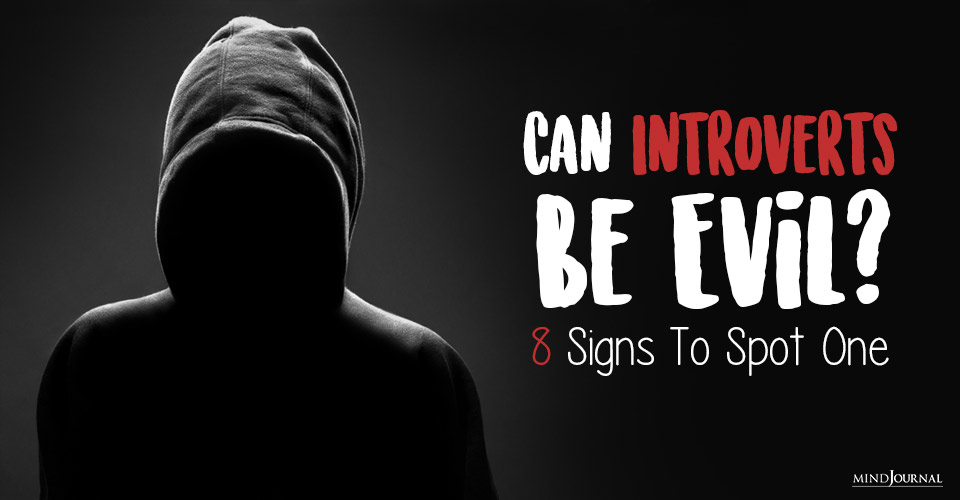
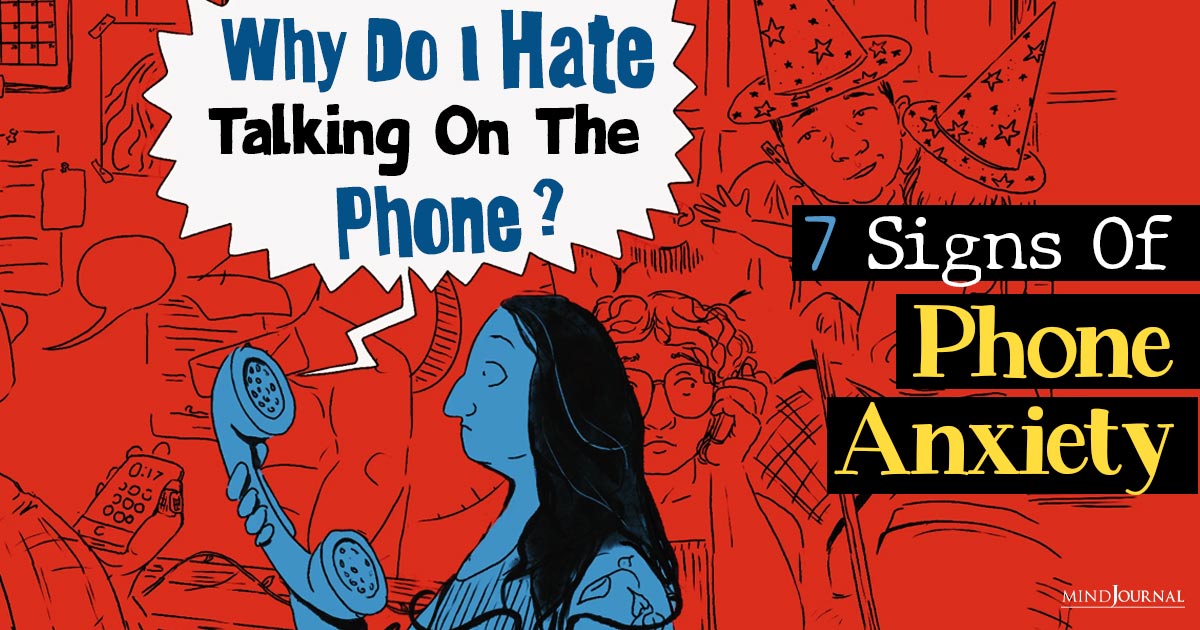
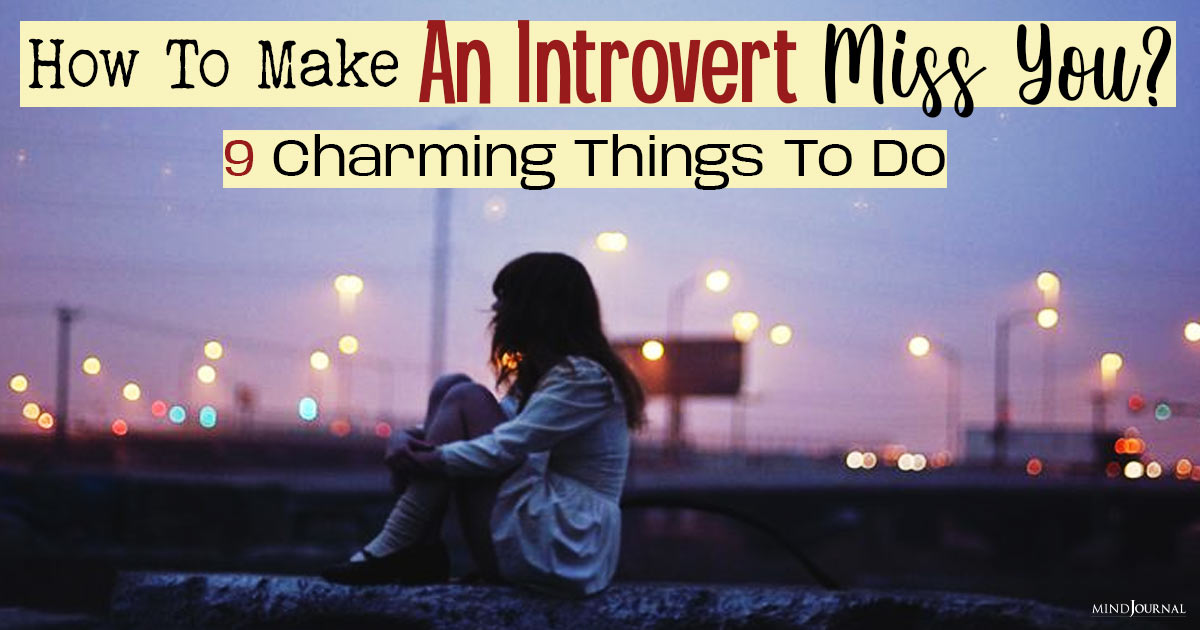
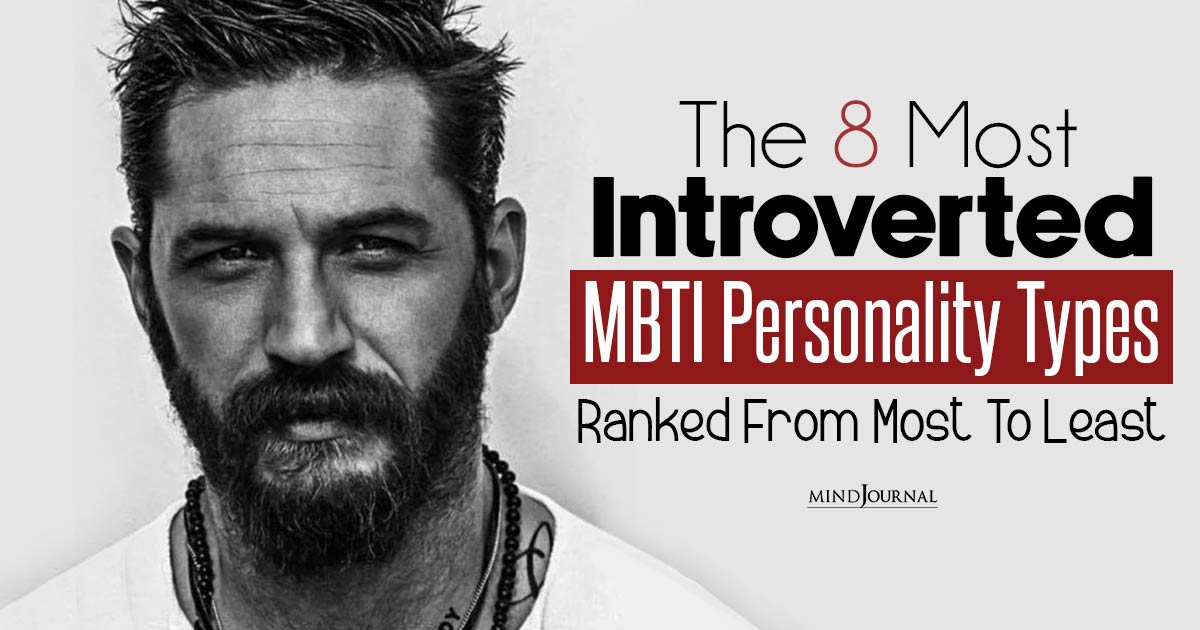
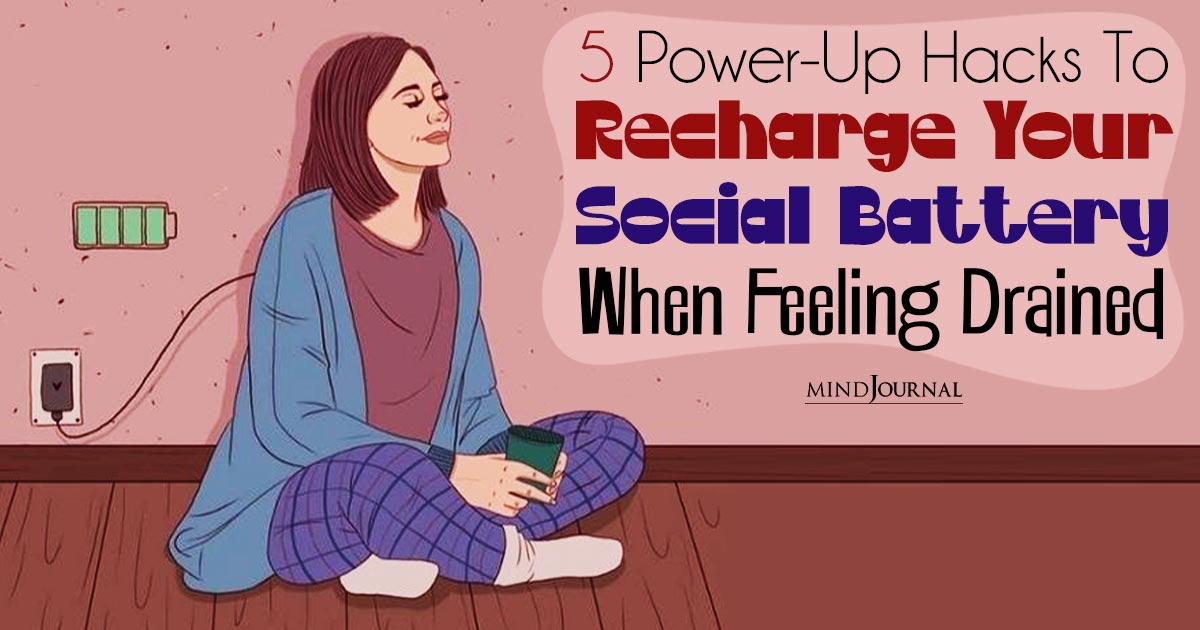
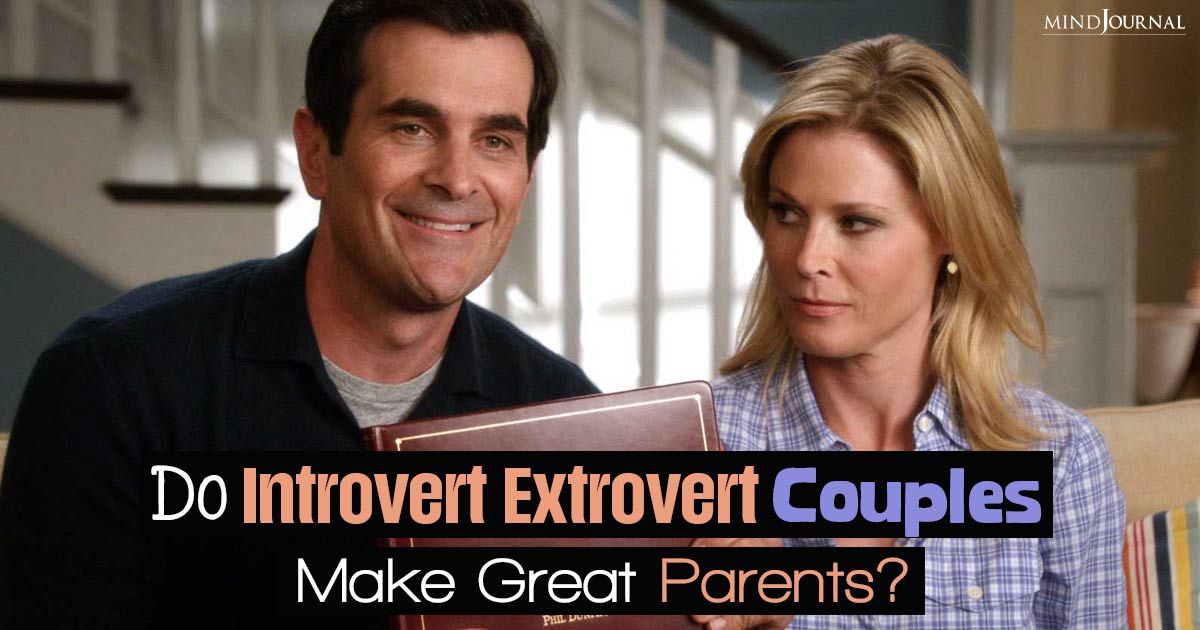

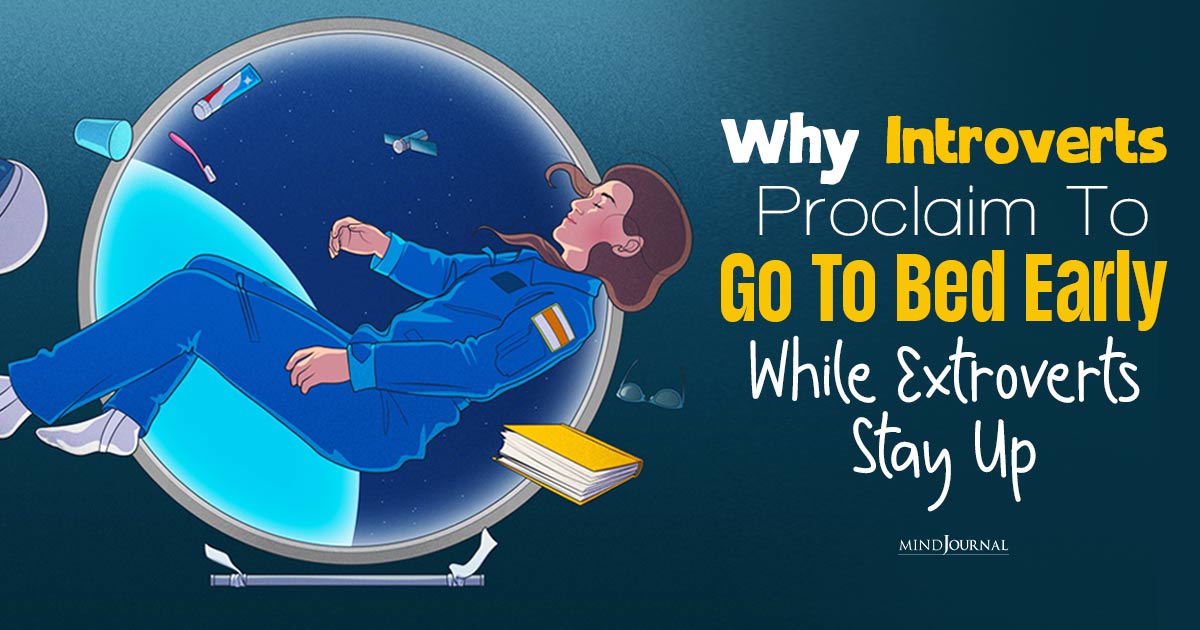
Leave a Reply